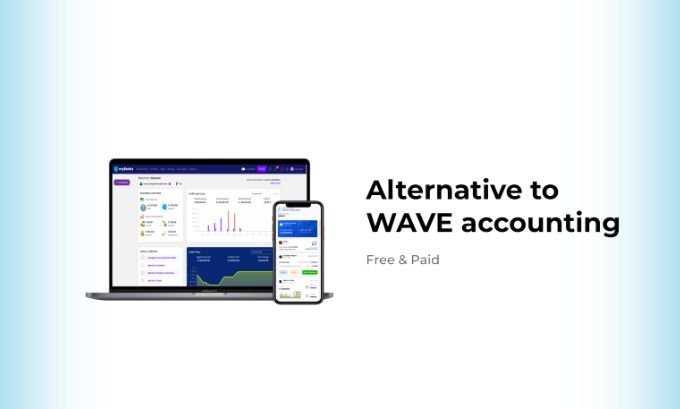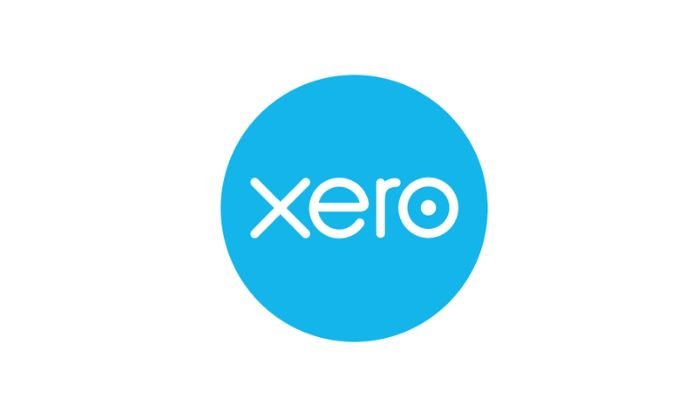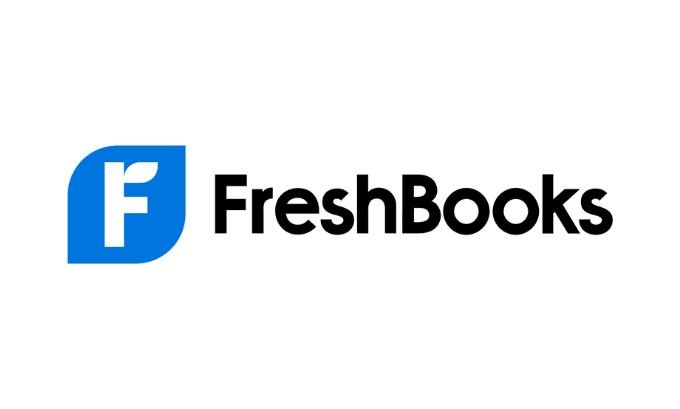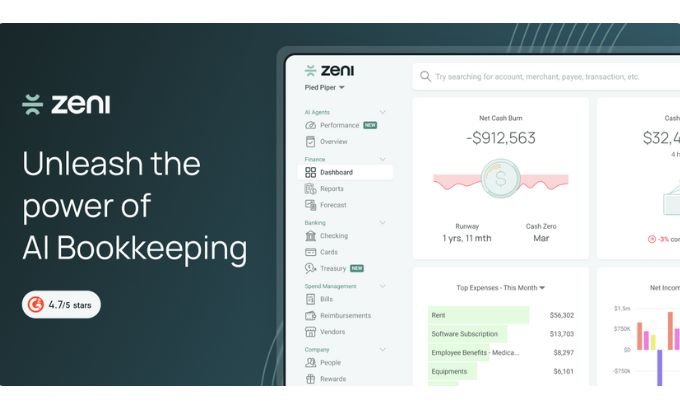Being a founder means wearing many hats, and “accountant” is often one of the least glamorous. The quest for affordable accounting software for startups is about finding a tool that frees you from spreadsheets so you can focus on innovation. The right platform brings order to financial chaos and provides the insights needed to steer your company toward growth.
This guide cuts through the marketing fluff to give you a clear, experience-based playbook. We’ll explore the top platforms, from free powerhouses to scalable systems, helping you select the perfect financial co-pilot. It’s time to transform your finances from a daunting task into a strategic advantage.
Table of Contents
Why Smart Financial Tools Are a Startup’s Superpower
Most startups begin their financial journey with a humble spreadsheet. It’s simple, free, and seems perfectly adequate—at first. But as your business gains momentum, that once-tidy grid devolves into a tangled web of formulas and potential errors. This is the inflection point where dedicated accounting software becomes an indispensable tool for survival and success.
Making the switch is a strategic move, not just an operational one. It automates tedious data entry, minimizing the risk of human errors that can lead to cash flow problems or tax-time panic. More importantly, it delivers a real-time, accurate dashboard of your financial health. This clarity empowers you to manage your runway, make sharp decisions, and present a compelling case to investors. For a founder, choosing the right affordable accounting software for startups is about laying a solid foundation for a resilient and scalable future.
My Story: From Inventory Nightmares to E-commerce Clarity
I’ll never forget the moment our DIY financial system finally broke. I was running a small e-commerce brand, and for the first year, we managed everything—sales, inventory, and expenses—in a monstrously complex Google Sheet. Then the holiday shopping season hit. Our sales volume exploded.
That January, I wasted an entire week just trying to make sense of the numbers. We had sold out of products we thought were in stock, our shipping cost calculations were wildly inaccurate, and we had no real idea which products were actually profitable. I was so buried in spreadsheets that I couldn’t focus on marketing or customer service. The business was suffering because I was stuck being a low-level data analyst.
We needed a system built for selling physical products. After a lot of research, we landed on QuickBooks Online, primarily for its robust inventory management and direct integration with our e-commerce platform. The change was immediate and transformative.
- What I Valued (The Strengths):
- Automated Sales Integration: Sales from our website flowed directly into QuickBooks, automatically updating our revenue and inventory counts. The hours I used to spend on manual data entry vanished overnight.
- Live Inventory Tracking: For the first time, we had a single source of truth for our stock levels. This prevented overselling and helped us create a much smarter reordering process.
- Product-Level Profitability: The reporting tools were a revelation. We could finally see our exact profit margin on every single item, which allowed us to make data-driven decisions about ad spend and pricing.
- A System That Could Grow: We knew that as we scaled, we could easily add payroll for our first employee or run more complex financial reports, all within the same ecosystem.
- Where It Fell Short (The Trade-offs):
- It’s Not Plug-and-Play: QuickBooks is a beast. It’s powerful, but it’s not intuitive for a beginner. We had to invest time in watching tutorials and going through the setup process carefully.
- The Cost is Real: Moving from a free spreadsheet to a monthly subscription was a new line item on our budget. The cost can also increase significantly as you upgrade plans or add more features.
This experience drove home a critical lesson: the best accounting software is the one that solves your biggest bottleneck. For our product-based business, inventory and e-commerce integration were non-negotiable. For a service-based agency or a SaaS company, the essential features would be completely different.
The Core Decision: Cloud Flexibility vs. On-Premise Control
When you start evaluating accounting software, you’ll face a foundational choice: do you want your financial data accessible from anywhere via the cloud, or do you want it housed on your own computers with an on-premise system? For most modern startups, the answer is straightforward, but it’s important to understand both sides.
Cloud-Based Accounting Software: Finance Without Fences
Think of cloud-based accounting software as your financial command center, accessible anytime, anywhere. The software is hosted on the vendor’s secure servers, and you connect to it through a web browser or mobile app. This model, often called Software-as-a-Service (SaaS), has become the standard for a reason—it’s built for the agility and remote-first nature of today’s startups.
Market data confirms this shift. Reports from firms like Allied Market Research project the cloud accounting market will continue its rapid expansion, demonstrating a fundamental change in how businesses manage their finances.
Why the Cloud is King for Startups:
- Work from Anywhere: Send an invoice from your phone or check your cash flow from a laptop at a conference. Your financials are no longer chained to a single desk.
- Hassle-Free Maintenance: The vendor handles all security patches, backups, and feature updates. You get the benefit of the latest technology without any IT overhead.
- Scales with You: Subscription tiers allow you to start with an affordable, basic plan and add more advanced features as your revenue and team grow.
- Frictionless Collaboration: Securely grant access to your accountant, bookkeeper, or co-founder. This enables real-time collaboration that saves time and reduces errors.
On-Premise Accounting Software: The Data Fortress
On-premise accounting software is the traditional model where you purchase a license and install the program on your local computers. This gives you complete ownership and control over the software and your financial data, creating a self-contained “walled garden.”
While less common for new ventures, this path can be a requirement for startups in highly regulated industries, such as government contracting or certain areas of biotech, where data security protocols may forbid the use of third-party cloud servers.
When On-Premise Might Be the Right Call:
- Total Data Sovereignty: Your data lives on your hardware. You control who has access and how it is secured.
- A Different Cost Structure: The large, one-time license fee can be more cost-effective over a very long period compared to a never-ending monthly subscription.
- Offline Access: You can access your financial data even if your internet connection goes down.
- Deep Customization: On-premise systems can sometimes offer deeper customization to integrate with other legacy enterprise systems.
Despite these specific use cases, the overwhelming advantages of flexibility, low upfront cost, and ease of collaboration make cloud-based accounting software the default and superior choice for nearly every startup today.
The Founder’s Shortlist: Top Affordable Accounting Platforms
The market for accounting tools is noisy. To help you find the right fit, here is a practical analysis of the top players, focusing on their core strengths and ideal user profiles.
1. Wave: The Best Free Tool for Day One

For founders on a shoestring budget, Wave is a true standout. It offers a powerful suite of core accounting, invoicing, and receipt-scanning features for free, making it the perfect starting block for professional financial management.
- Ideal For: Freelancers, solopreneurs, and brand-new startups where cash flow is king and every dollar is scrutinized.
- Key Strengths:
- Genuinely Free: It’s a legitimate, double-entry accounting system that costs nothing to use for its core features.
- No Artificial Limits: You can send unlimited invoices and connect as many bank accounts as you need without hitting a paywall.
- Polished Invoicing: The invoice templates are clean and customizable, helping your small operation look professional from the start.
- Points to Consider:
- Integration Island: Wave’s major weakness is its lack of integrations with other business apps. As your tech stack grows, this can become a significant hurdle.
- Lacks Advanced Automation: It doesn’t have the sophisticated bank rules or automated workflows found in paid competitors.
- Paid Add-Ons: Wave’s business model relies on charging for optional services like payment processing and payroll.
If you’re looking to explore more about affordable accounting software for startups , visit this websites 👇 which offer valuable resource s and up-to-date information for entrepreneurs. 👇
techbullion.in
gogonihon.jp.net
mindjournal.co
ponta.in
2. Xero: The Design-Centric Collaborator
Xero is a top-tier QuickBooks alternative beloved for its elegant interface and collaborative spirit. It is a powerful piece of cloud-based accounting software that feels more like a modern tech tool and less like traditional accounting software.

- Ideal For: Startups with growing teams who value a clean user experience and features that foster collaboration.
- Key Strengths:
- Unlimited Users: This is Xero’s standout feature. All plans, from cheapest to most expensive, allow for unlimited users, which provides incredible value as your team grows.
- Intuitive Design: Many founders find Xero’s layout and workflow to be more intuitive and less intimidating than its competitors.
- Robust Core Features: It excels at bank reconciliation, invoicing, bill pay, and project tracking.
- Points to Consider:
- Restrictive Starter Plan: The “Early” plan is very limited, capping the number of invoices and bills you can process each month. Most businesses will need to start on the “Growing” plan.
- Support Model: Customer support is handled primarily through an online ticketing system, which can be frustrating when you need an immediate answer to a problem.
3. FreshBooks: The Champion for Service-Based Startups
FreshBooks was designed with one user in mind: the service-based business owner. Its entire feature set is optimized for tracking hours, managing client projects, and ensuring you get paid for your time and expertise.
- Ideal For: Consultants, creative agencies, developers, and any startup that sells services instead of physical products.

- Key Strengths:
- Best-in-Class Invoicing: It is incredibly simple to create beautiful invoices, automate payment reminders, and even add late fees.
- Seamless Time Tracking: The time-tracking tools are simple to use from any device and integrate perfectly into the invoicing process.
- Project Profitability: Easily track hours and expenses against project budgets to see which clients are your most profitable.
- Points to Consider:
- Not for Retail: Its inventory management is an afterthought. If you sell physical goods, this is not the right tool for you.
- Client Limits on Lower Tiers: The entry-level plans limit the number of active clients you can bill, which can feel restrictive for a growing agency.
4. Zeni: The White-Glove Service for Funded Tech Companies
Zeni operates in a different league. It’s a managed financial service that combines an AI-powered platform with a dedicated team of finance experts. It’s essentially an outsourced finance department for high-growth SaaS companies and tech startups.
- Ideal For: Venture-backed startups that have graduated from basic bookkeeping and require sophisticated financial management and strategic reporting.
- Key Strengths:
- Daily Financials: Your books are reconciled every day, giving you a real-time, up-to-the-minute view of your financial position.
- A Full Finance Team on Demand: The service includes access to bookkeepers, controllers, and fractional CFOs for strategic guidance.
- Purpose-Built for SaaS: The platform is designed to track and visualize essential SaaS metrics like MRR, ARR, churn, and LTV right out of the box.
- Points to Consider:
- Premium Investment: This is a high-touch service with a premium price tag. It is not affordable accounting software for startups in the traditional sense.
- It’s a Service, Not a Tool: This is the right fit for founders who want to delegate their finances entirely, not for those who want to be hands-on with their own books.

Feature & Philosophy Comparison
| Software | Core Philosophy | Starting Price (Approx.) | Best For… | You Might Look Elsewhere If… |
|---|---|---|---|---|
| Wave | Provide core accounting for free. | $0/month | Bootstrappers & Solopreneurs | You need to integrate with other business apps. |
| Xero | Collaboration and beautiful design. | ~$15/month | Growing, collaborative teams | You need phone support or have very few invoices. |
| FreshBooks | Make invoicing and getting paid easy. | ~$17/month | Service-based businesses & agencies | You sell physical products. |
| QuickBooks | Be the all-in-one scalable solution. | ~$30/month | E-commerce & businesses planning rapid growth | You want a simple, minimalist interface. |
| Zeni | Outsource your entire finance department. | Custom (High-end) | Funded tech & SaaS companies | You are on a tight budget or want to DIY. |
Frequently Asked Questions (FAQ)
1. When is the right time for a startup to get accounting software?
The ideal time is Day 1. While it’s tempting to put it off, starting with a professional system from the beginning establishes sound financial hygiene and avoids the painful process of migrating months of messy spreadsheet data later.
2. As a founder with no finance background, can I do my own accounting?
Yes, absolutely. In the early stages, modern accounting software like Wave, FreshBooks, and Xero is specifically designed for non-accountants. The user interfaces are built to be intuitive. However, it is always a wise investment to have a CPA review your books at least once a year.
3. What is “double-entry accounting,” and why does it matter?
It’s the universal standard for business accounting. In simple terms, it means every transaction is recorded twice—as a debit in one account and a credit in another. This ensures your financial records are always balanced and accurate. All reputable software platforms, including those discussed here, are built on this principle.
4. Is it actually safe to use free accounting software like Wave?
Yes. Reputable free platforms like Wave use bank-level 256-bit encryption to secure your financial data. Their business model is not based on selling your data; it’s based on converting free users to their paid services like payroll and payment processing.
5. Realistically, what should I budget for accounting software?
You can start for $0 with a platform like Wave. For a more robust paid plan with greater automation and scalability, a realistic starting budget is between $30 and $70 per month. This cost will increase as your business grows and your needs become more complex.
6. I run a SaaS company. What is the single most important feature for me?
For SaaS Companies, the most critical feature is automated revenue recognition. You need a system that can handle the complexities of subscription billing (e.g., recognizing monthly revenue from an annual contract) and provide clear dashboards for key metrics like Monthly Recurring Revenue (MRR), churn rate, and Customer Acquisition Cost (CAC).
7. Should I just use whatever software my accountant recommends?
Your accountant’s preference is an important factor, as it makes collaboration easier. However, you are the person who will be using the software day-to-day. Choose the platform that best fits your business model and that you find the most intuitive. Most modern accountants are proficient in several major platforms.
Your Next Step: From Information to Action
Choosing affordable accounting software for your startup is a pivotal decision that pays long-term dividends in time saved, clarity gained, and stress reduced. It elevates your financial data from a simple record of the past into a powerful tool for shaping the future.
The best way forward is to act. Don’t get stuck in endless research. Identify the one or two features that would make the biggest difference for your business right now. Then, sign up for a free trial of the top two contenders on your list. Get a feel for the workflow. See which one clicks. Taking this step is a powerful move toward building a more resilient, data-driven, and successful company.


